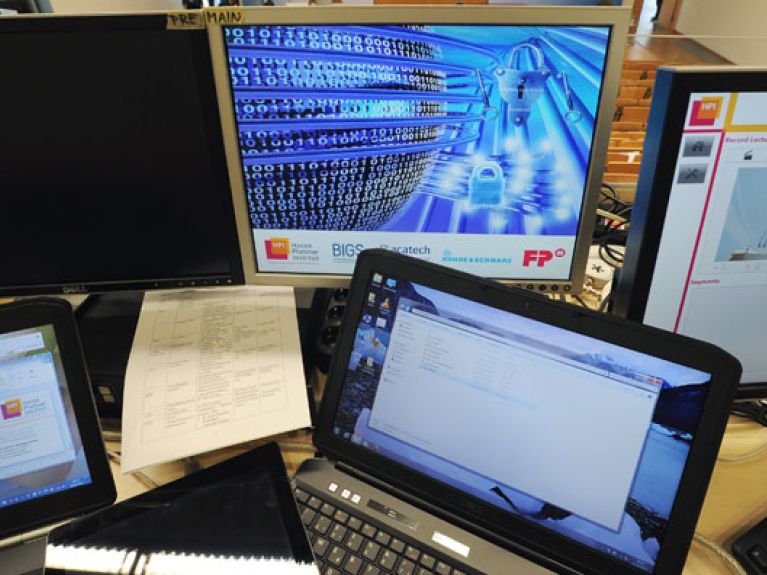School of Design Thinking
Hasso Plattner Institute D-Schools seek creative solutions to urgent problems.

What is the best way to reduce waste in single-person households? Which technologies are required? Which products would make life easier and improve the quality of life for people with dementia? These questions may be very different, but one group of young people are working together to find appropriate answers. While studying at university, they are also attending courses at the School of Design Thinking in Potsdam, or D-School, or short. Students of many different disciplines are involved: among others, medicine, law, business administration, computer science and history. The students work together in small groups, standing around flexible bar tables. Next to them stand white boards on which the multidisciplinary teams can attach sticky notes or write with coloured markers. The furniture has rollers so that it can be quickly moved aside – for example, to make more room to build prototypes.
What sounds like great fun actually also entails a lot of hard work, because D-School students are expected to develop creative and innovative solutions for all areas of life. Named after the SAP co-founder, who also provides financial support, the Hasso Plattner Institute of Design opened its doors at Stanford University in 2005. Two years later, the School of Design Thinking at the Hasso Plattner Institute in Potsdam began teaching students according to the same principles.
Students can also attend courses in Beijing and Paris or at the Design Thinking School in Malaysia, which was founded in Kuala Lumpur in February 2013 with support from the Hasso Plattner Institute. Students there are currently looking for answers to the question of how to interest young people in social involvement and encourage them to support the development of their region. For example, they are working on ideas for the water and energy supply system of the future. Later, they are to take their knowledge out into society as “innovation ambassadors” – and disseminate design thinking and solidarity.
International Human Solidarity Day on 20 December 2013
www.un.org/en/events/humansolidarityday/index.shtml

